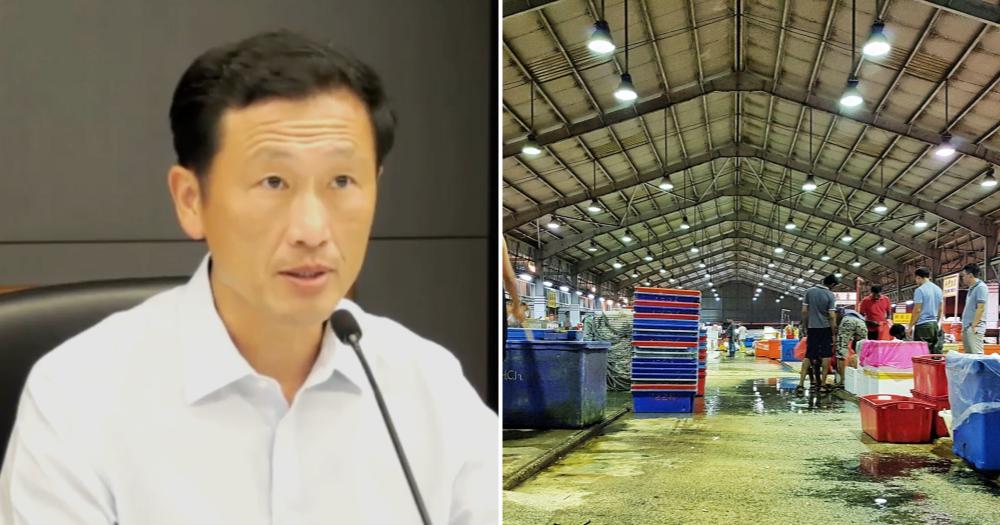The large cluster of Covid-19 cases involving those who visited KTV lounges where Safe Management Measures were often breached is in fact not to blame for the tightening of restrictions taking place from tomorrow (Jul. 22).
This was what health minister Ong Ye Kung said on Jul. 21.
Ong explained that what caused the "slide back" to the tighter measures under Phase 2 (Heightened Alert) — where dining in is prohibited and social gatherings are limited to two persons — was actually the Jurong Fishery Port cluster.
Cases from KTV cluster have come down over past few days
"Like everyone, I am upset with the irresponsible behaviour of people in the KTV cluster, but it is not the reason for the reversion to Phase 2 (HA)," said Ong in a Facebook post on Jul 21.
He explained that the Multi-Ministry Task Force (MTF) thought that the KTV cluster could be brought under control, and previously decided to continue allowing dining in, with the additional requirement for those in groups of more than two to be fully vaccinated.
"Indeed, the number of cases from this cluster has come down over the past few days," said Ong.
Ong then explained why it was the Jurong Fishery Port cluster that prompted the decision to revert to Phase 2 (HA). He said that fishmongers and stall assistants got infected at the Port while "going about earning an honest living".
"As they went on to work at various markets around the island, many more cases in the community were seeded," Ong wrote.
He also said that what was "most worrying" was the fact that seniors frequent these markets, including many unvaccinated seniors. Because of this, "we are at risk of an uncontrollable rise in cases, which could potentially result in many severe illnesses or even deaths."
"So we need to preemptively tighten up social activities," Ong concluded.
What happens if a number of seniors continue to refuse vaccination?
Ong had previously said in a press conference on Jul. 20 that getting more of the 200,000 unvaccinated seniors to get the Covid-19 vaccination was "a path that we will continue to press on".
However, Ong also said he did not think that unvaccinated seniors would "always hold us back". He said that the demographic needing "more work" was those over 70 years old, for whom vaccination rates were around 71 per cent.
Ong said that vaccination for at least 75 per cent of this group was "in the bag" based on bookings for vaccinations in the coming days. "Maybe we can reach 80, 85 per cent," he said.
Ong added that increased rates of vaccination among the rest of the community also made it less likely for unvaccinated seniors to be infected by household members bringing the virus home.
This, coupled with differentiated treatment between vaccinated and unvaccinated persons, would help to protect seniors, even if they were unvaccinated.
Why close restaurants even though no cases detected there?
Addressing a separate point, Ong said that some had asked him why dining in at restaurants had to be suspended even though there were no cases detected at such settings.
This was one of "several valid queries" Ong said he received. "Unfortunately it does not work like that," he wrote.
He posed a hypothetical scenario in which a group of five friends met for dinner, and each member of the group is part of a household of five persons, who then meet with their own groups of five.
In such a scenario, Ong said, "we have a network of 5x5x5=125 connections for the virus to work itself through."
"This will turbo charge the Jurong Fishery Port cluster further."
Vaccination now at 50 per cent, will increase by one per cent daily
Ong ended on a positive note, reiterating that 50 per cent of the population has received two doses.
This percentage would continue to go up by one percentage point every day, meaning that in two weeks, at least 64 per cent of the population would have had both doses of the vaccine.
"That will put us in a much stronger and resilient position when we review the Phase 2 (HA) rules," Ong said.
He also acknowledged that the current situation was "frustrating" and added:
"We are so close to being in a much stronger and confident position. Given the gravity of the Jurong Fishery Port cluster, we felt it is not the time to risk it all now."
Related story:
Top image by Joshua Lee
If you like what you read, follow us on Facebook, Instagram, Twitter and Telegram to get the latest updates.
